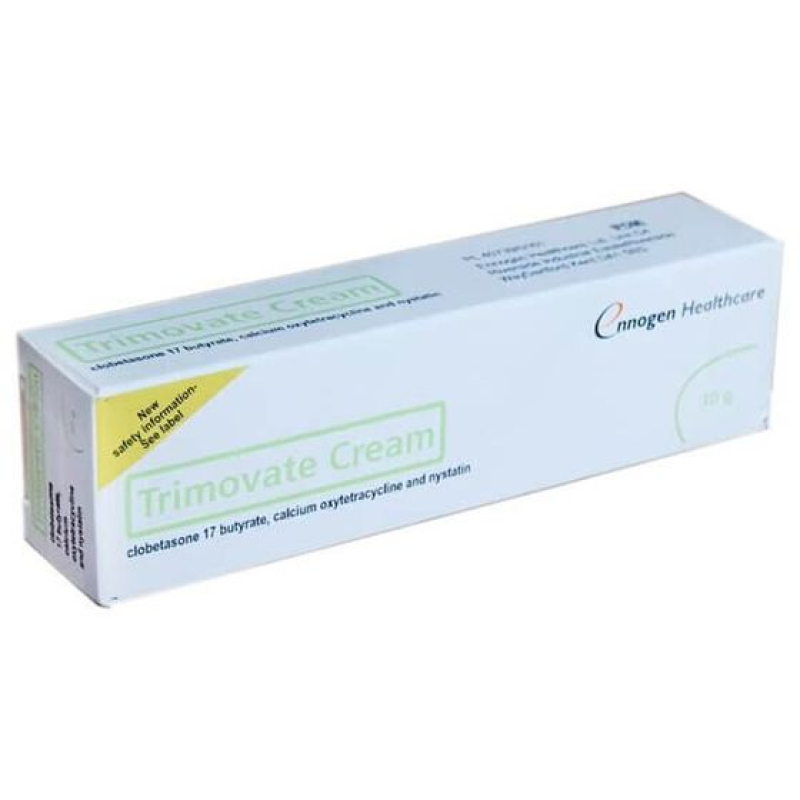Trimovate Cream

* Images for illustrative purposes only
* Brand supplied may vary depending on stock availability
While You Wait Service Available
While You Wait Service available for additional £3, conditions apply.

* Images for illustrative purposes only
* Brand supplied may vary depending on stock availability
While You Wait Service available for additional £3, conditions apply.
No appointment or long waiting times
Your information always remains private
All our doctors & pharmacists are qualified & based in the UK
Dispensed by our UK partner pharmacies

Choose from our treatment options or speak to the in-store pharmacist for advice

Complete our free online medical consultation to be reviewed by our Clinical Team

We will notify you when your medication is ready for collection
Trimovate is a prescription-only topical treatment that can be used to treat a variety of skin conditions, including those caused by a bacterial or fungal infection.
If you’re struggling with inflamed, itchy skin, Trimovate can help to relieve your symptoms, while preventing the infection from spreading.
Trimovate Cream is:
A corticosteroid formulation stronger than Hydrocortisone, but weaker than Betnovate.
Made using three active ingredients: Clobetasone Butyrate (steroid), Oxytetracycline (antibiotic) and Nystatin (antifungal).
Suitable for all ages, and most commonly prescribed for skin conditions such as eczema (atopic, seborrhoeic & contact dermatitis), psoriasis, nappy rash and impetigo.
Trimovate Cream is used to treat conditions such as:
Skin infections
Atopic dermatitis (eczema)
Allergic dermatitis
Psoriasis
Inflammatory skin conditions
Itchy, irritated or dry skin caused by skin-to-skin contact (intertrigo)
Trimovate should not be used for the treatment of rosacea or acne.
Usually, Trimovate will be prescribed for use once or twice a day, but the frequency and duration of treatment can vary from patient to patient. To use follow the steps below:
Clean the affected area with soap and water, and dry the skin thoroughly.
Apply a thin layer of cream to the affected area(s). You can measure how much cream to use in ‘fingertip units’; measuring from the tip of your index finger to the first joint. Gently massage the skin, rubbing the cream in until it’s fully absorbed. Where possible, try not to get too much cream on the surrounding areas of healthy skin.
Wash your hands thoroughly after using the cream (unless the affected area is on your hands).



